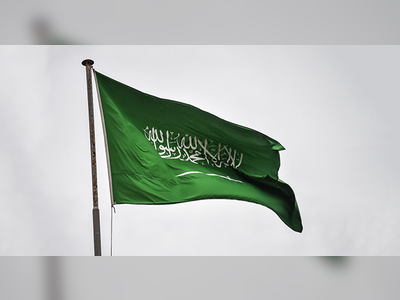Escalating Middle East Tensions: Israeli Strikes on Lebanon, Global Security Concerns, and Diplomatic Challenges
Israeli-Lebanon tensions escalate with deadly strikes, while Germany faces rising security concerns amid extremist threats.
In the past 24 hours, Israeli strikes on Lebanon have led to tragic consequences, with 37 deaths and 151 injuries reported by the Lebanese health ministry. Despite these escalating tensions, which coincide with ongoing conflicts involving Israel and Hezbollah, United Nations peacekeepers remain stationed in southern Lebanon to facilitate crucial communication between the nations.
Furthermore, the situation intensifies with an Israeli air strike on the Tulkarm refugee camp in the West Bank, resulting in at least 16 casualties. This incident is part of a larger pattern of unrest in the region, following recent violent exchanges linked to the conflict ignited by Hamas' attack, leading to significant losses on both sides.
Meanwhile, in Germany, authorities arrested a 15-year-old boy for allegedly plotting attacks against Jews, amid rising security concerns in the country. This arrest follows a recent tragic knife attack in Solingen, reflecting the broader concern over extremist activities within Europe.
On the topic of protests, thousands gathered in Berlin to voice their opposition to Germany's military aid to Ukraine, advocating for diplomatic negotiations rather than weapon shipments. This demonstration occurs as political figures gain influence by challenging Germany's current policies on Ukraine, ahead of U.S. President Joe Biden's upcoming visit to discuss ongoing support.
In the realm of international support, U.S. House Foreign Affairs Chairman Michael McCaul has pressed President Biden to expedite delayed arms sales to Israel. McCaul underscores the need for timely assistance in light of the increasing Middle East hostilities, as a number of planned weapon sales await approval.
These interconnected global events highlight the complexities and challenges faced by nations as they navigate conflicts and diplomatic relationships in a rapidly changing world.
Furthermore, the situation intensifies with an Israeli air strike on the Tulkarm refugee camp in the West Bank, resulting in at least 16 casualties. This incident is part of a larger pattern of unrest in the region, following recent violent exchanges linked to the conflict ignited by Hamas' attack, leading to significant losses on both sides.
Meanwhile, in Germany, authorities arrested a 15-year-old boy for allegedly plotting attacks against Jews, amid rising security concerns in the country. This arrest follows a recent tragic knife attack in Solingen, reflecting the broader concern over extremist activities within Europe.
On the topic of protests, thousands gathered in Berlin to voice their opposition to Germany's military aid to Ukraine, advocating for diplomatic negotiations rather than weapon shipments. This demonstration occurs as political figures gain influence by challenging Germany's current policies on Ukraine, ahead of U.S. President Joe Biden's upcoming visit to discuss ongoing support.
In the realm of international support, U.S. House Foreign Affairs Chairman Michael McCaul has pressed President Biden to expedite delayed arms sales to Israel. McCaul underscores the need for timely assistance in light of the increasing Middle East hostilities, as a number of planned weapon sales await approval.
These interconnected global events highlight the complexities and challenges faced by nations as they navigate conflicts and diplomatic relationships in a rapidly changing world.











